Our History
When the Education Law Center opened a Pennsylvania office in 1975, a small staff began to develop an ambitious mission — to ensure that all children in Pennsylvania have access to quality public education.
Fifty years later, we are making an impact for students across Pennsylvania — and proudly celebrating our achievements while envisioning new strategies for the future.
Today, ELC is a nationally recognized leader working for educational equity, supporting over 1,000 individual families and child-serving professionals each year and impacting thousands more through our systemic advocacy. From securing legal firsts for students with disabilities to sparking reforms for multilingual students, from rewriting racially discriminatory dress codes to successfully challenging the constitutionality of the state’s school funding system, ELC has had a profound impact on policies and education law over our first half-century.
Milestones from our first 50 years
1975: A Notable Year in Education Law
Learn more about the birth of ELC and IDEA in 1975.

In our first year, our small Pennsylvania office played a crucial role in shaping the implementation of a landmark federal education law and quickly demonstrated its expertise in special-education litigation.
1985: Class Action Wins Improvements for Asian Immigrant Students
Read more about the Y.S. case.
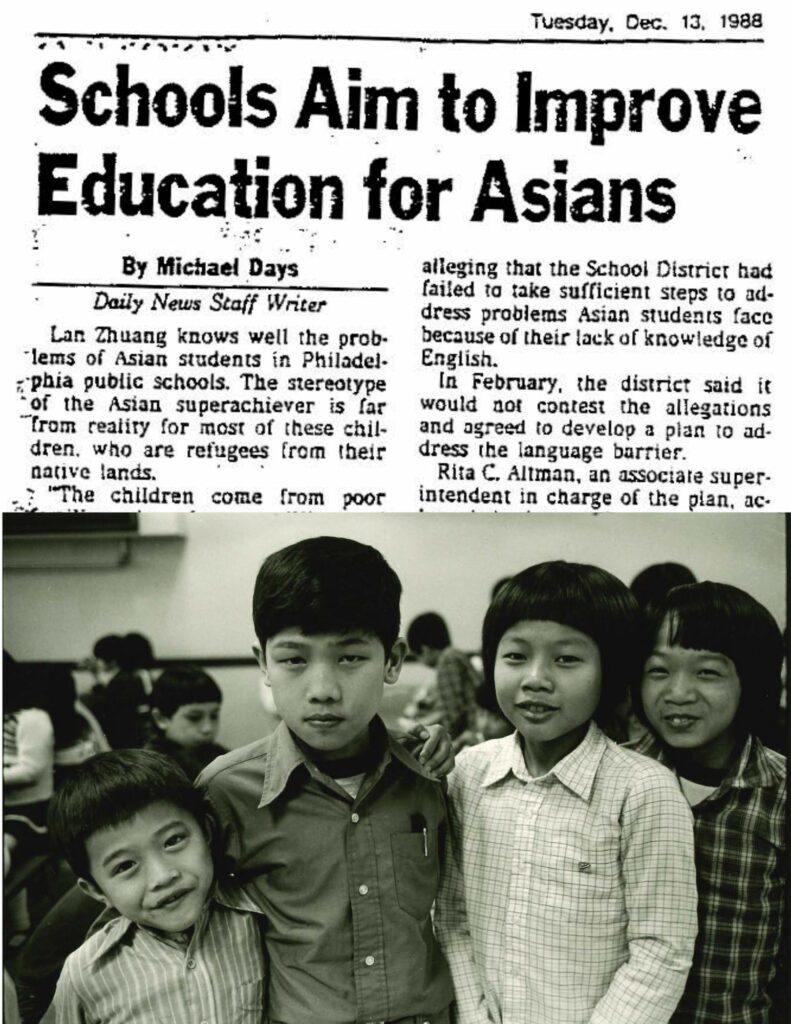
In 1985, the Education Law Center brought a class action lawsuit, Y.S. v. School District of Philadelphia, with the aim of securing an adequate educational program for thousands of students who were immigrants from Asia.
1987: Winning Accommodations for Students With Disabilities
Read more about our Elizabeth S. case here.
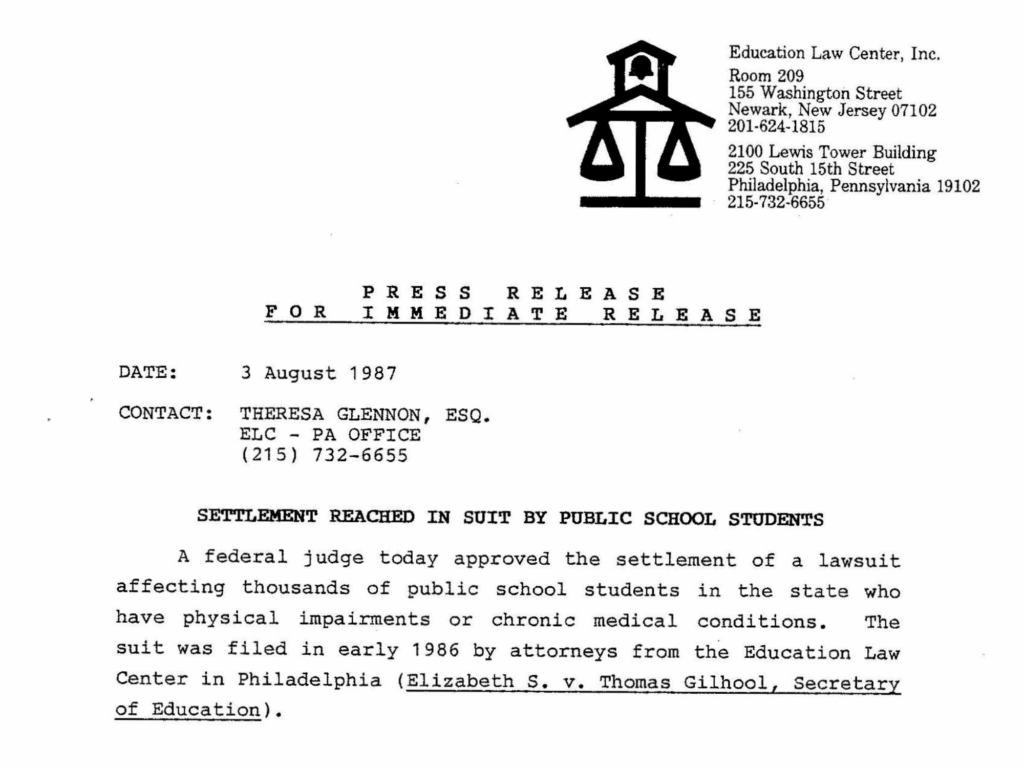
In 1986, the Education Law Center sued the Williamsport Area School District and the Pennsylvania Department of Education, alleging that districts across the state were violating students’ rights by discriminating against them on the basis of disability.
1989: Hendricks v. Gilhool: A 1989 Victory for Equal Education
Read more about Hendricks v. Gilhool here.
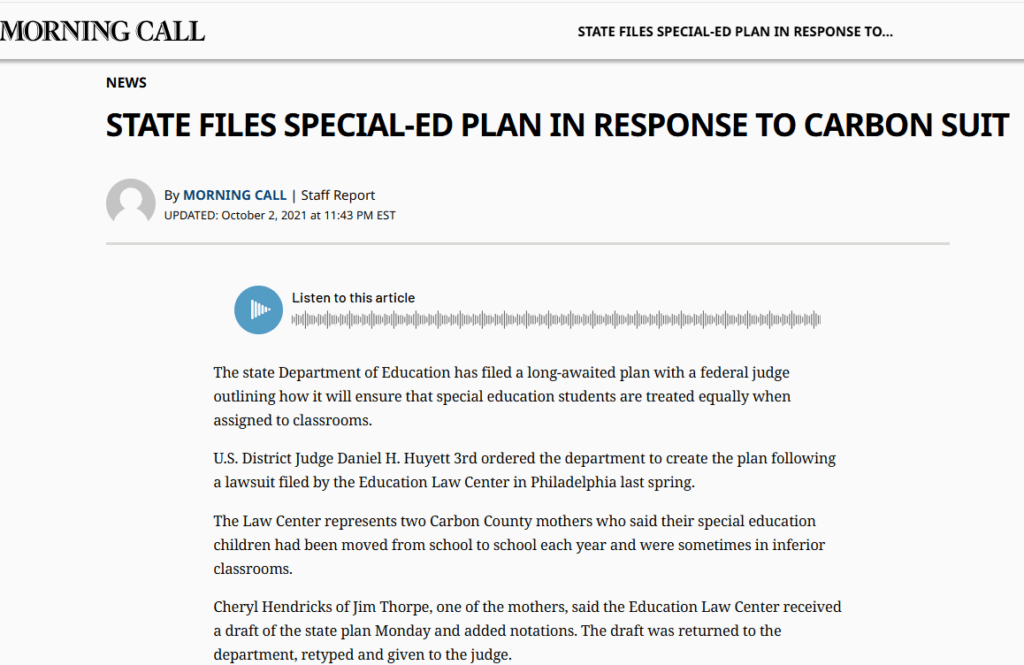
Inaccessible and inferior classrooms. Arduous, lengthy bus rides. Children forced into separate, restrictive schools. Frustrated parents complained, and the Education Law Center took up their cause in Hendricks v. Gilhool, a 1989 federal class-action lawsuit that convincingly demonstrated a pattern of discrimination against students with disabilities in multiple school districts.
1992: State Ordered to Eliminate Gaps in Services for Students With Disabilities
Learn more about our Cordero case here.
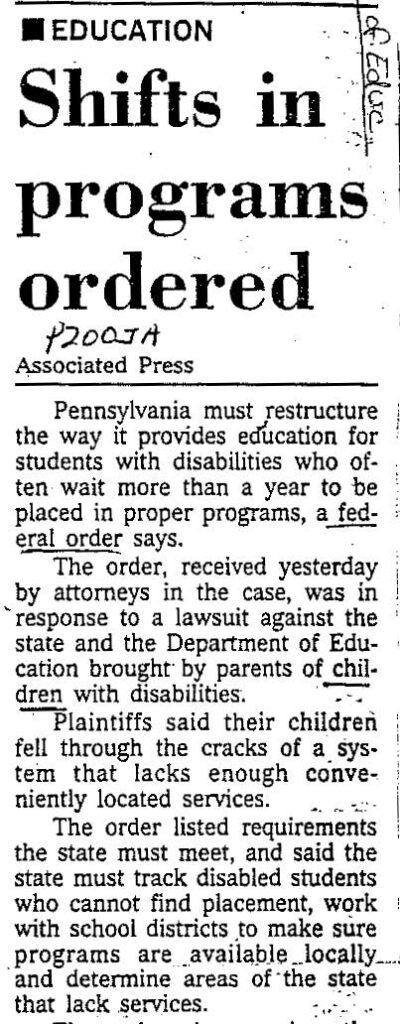
A federal class action case known as Cordero, litigated by Education Law Center-PA and resolved in 1992, established that the state has an unequivocal responsibility under the federal Individuals with Disabilities Education Act to ensure prompt access to a range of placements for children who may need a more complex set of special education supports — and ensure access to a free appropriate education in the least restrictive environment.
1994: LeGare Case Leads to New Admissions Process for Selective Public Schools
Learn more about our LeGare case here.
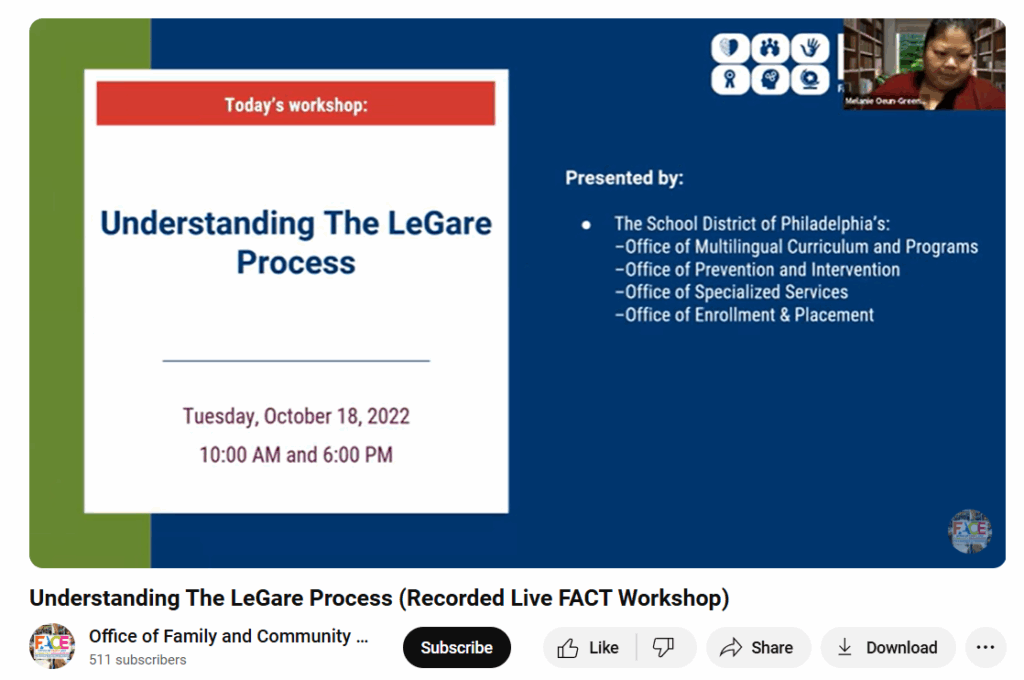
In the early 1990s, frustrated parents in Philadelphia complained to the Education Law Center that their children, who had been identified as having disabilities, missed out on serious consideration for admission to the city’s selective schools.
1997: T.B. v. School District of Philadelphia: Protecting Students from Expulsion Before Disabilities are Identified
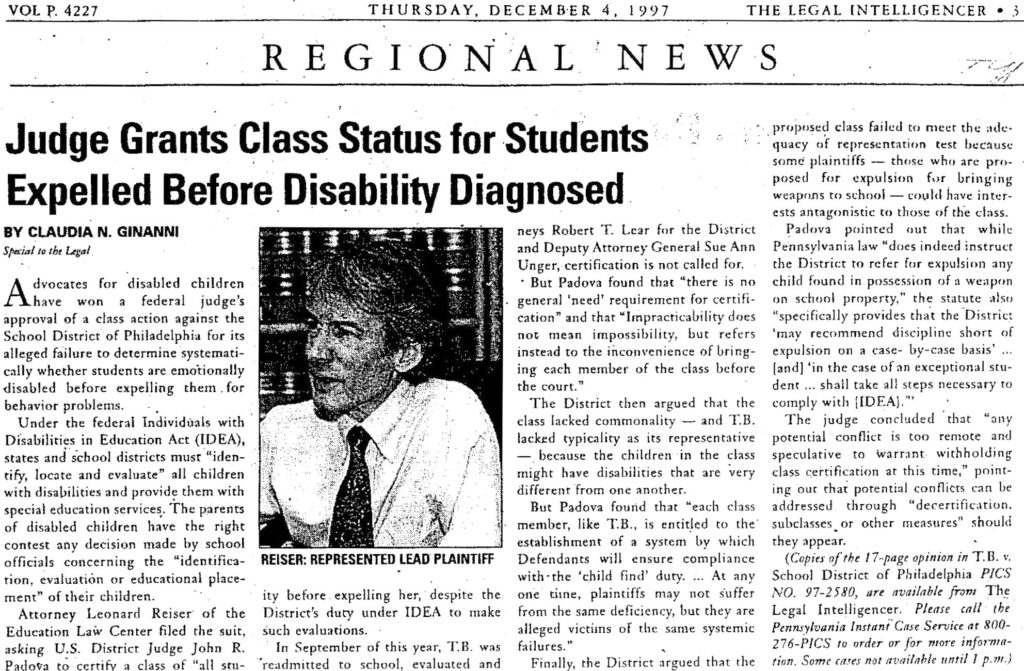
Filed in 1997, T.B. v. School District of Philadelphia was a class-action lawsuit brought by the Education Law Center on behalf of students who were expelled before being evaluated for special education services.
2004: ELC Challenges Racial Inequities in Qualified-Teacher Placement
Learn more about the Teacher Equity Campaign here.
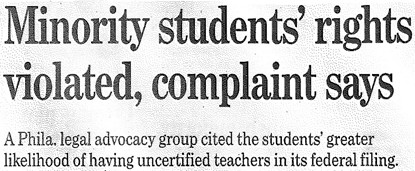
Two decades ago, Education Law Center turned its attention to the issue of racial inequities in students’ access to qualified teachers in Philadelphia schools – initially by filing a federal civil rights complaint.
2017: Victory for Immigrant Students Who Wanted to Learn English
Learn more about our Issa case here.

In July 2016, the Education Law Center, along with our partners, sued the School District of Lancaster to stop its practice of diverting older immigrant students with limited English proficiency to an inferior, privately operated alternative school.
2022: Advancing Rights for Students Who Experience Educational Disruptions
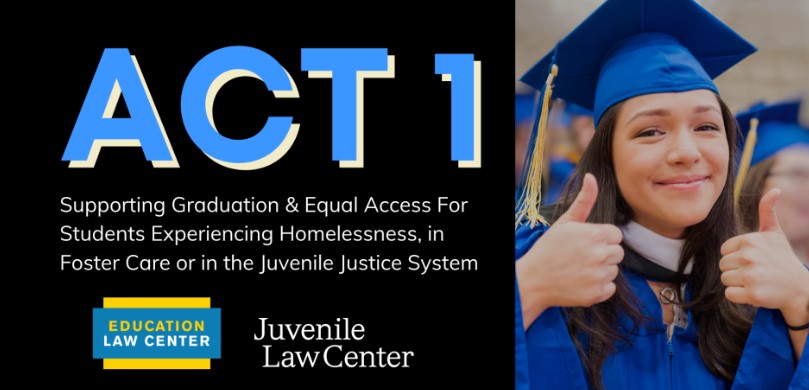
The Education Law Center was a major driving force behind Act 1 of 2022, landmark legislation that removes educational and graduation barriers for students who experience “education instability,” defined as one or more school moves in a school year due to experiencing homelessness, foster care, or juvenile justice involvement.
2023: A Landmark Win in the Fight For Fair School Funding
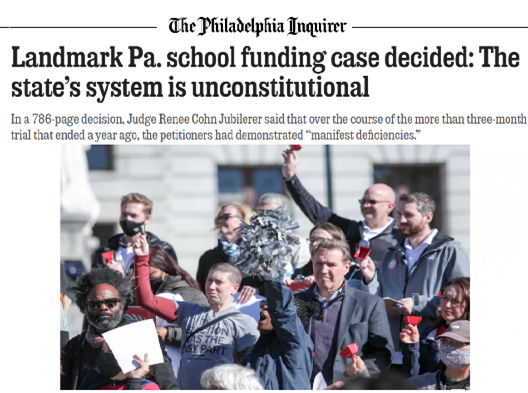
On February 7, 2023, Commonwealth Court Judge Renée Cohn Jubelirer issued a historic ruling that Pennsylvania’s school funding system is unconstitutional. The court recognized that our public schools require adequate funding to meet our constitution’s mandate, and the ruling directed the legislature to develop and implement a plan for bringing the state’s school funding system into constitutional compliance.
Learn more about ELC’s impactful history.
From our video library
How the Helpline Started
 In this clip from our interview about ELC history with Janet Stotland and Len Rieser, former ELC co-directors, Janet speaks about ELC’s work after the passage of the law now known as the Individuals with Disabilities Education Act 1975. Educators had to be educated about the new legal environment and its implications.
In this clip from our interview about ELC history with Janet Stotland and Len Rieser, former ELC co-directors, Janet speaks about ELC’s work after the passage of the law now known as the Individuals with Disabilities Education Act 1975. Educators had to be educated about the new legal environment and its implications.
ELC Litigation Has Brought Systemic Change
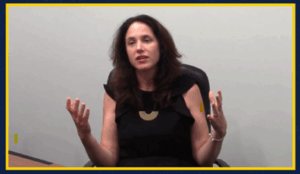 ELC senior attorney Margie Wakelin talks about how the skillful work of ELC attorneys on cases over the past 50 years has again and again led to lasting institutional changes, expanding the rights of children.
ELC senior attorney Margie Wakelin talks about how the skillful work of ELC attorneys on cases over the past 50 years has again and again led to lasting institutional changes, expanding the rights of children.
Educating the Educators
 In this clip from our interview about ELC history with Janet Stotland and Len Rieser, former ELC co-directors, Janet speaks about ELC’s work after the passage of the law now known as the Individuals with Disabilities Education Act 1975. Educators had to be educated about the new legal environment and its implications.
In this clip from our interview about ELC history with Janet Stotland and Len Rieser, former ELC co-directors, Janet speaks about ELC’s work after the passage of the law now known as the Individuals with Disabilities Education Act 1975. Educators had to be educated about the new legal environment and its implications.
Laying Groundwork for Statewide Advocacy, Fair Funding Case
 Len Rieser, former ELC co-director, talks about the increased outreach and networking ELC did starting in the 1990s that helped kickstart a statewide movement for fair funding.
Len Rieser, former ELC co-director, talks about the increased outreach and networking ELC did starting in the 1990s that helped kickstart a statewide movement for fair funding.
Building Upon the Strength of the Disability Rights Movement
 Janet Stotland, former ELC executive director, describes how, from the organization’s earliest days, ELC worked to connect parents who were advocating for students with disabilities to other education battles beyond the issues of special education.
Janet Stotland, former ELC executive director, describes how, from the organization’s earliest days, ELC worked to connect parents who were advocating for students with disabilities to other education battles beyond the issues of special education.
Taking on Difficult Issues
 Education organizer and former ELC board member, Rochelle Nichols Solomon, talks about Education Law Center’s long-term commitment to the fight for fair funding.
Education organizer and former ELC board member, Rochelle Nichols Solomon, talks about Education Law Center’s long-term commitment to the fight for fair funding.
Students’ Right to Receive Meaningful English Language Instruction
 Khadidja Issa, a student plaintiff in the case, speaks with ELC senior staff attorney Kristina Moon about arriving in the United States and trying to enroll in school.
Khadidja Issa, a student plaintiff in the case, speaks with ELC senior staff attorney Kristina Moon about arriving in the United States and trying to enroll in school.
Special Education Classes Must Have Equal Access to Appropriate Classrooms
 Former ELC director Len Rieser explains our 1989 case Hendricks v. Gilhool; a federal court ruled that special education classes must have equal access to appropriate classrooms.
Former ELC director Len Rieser explains our 1989 case Hendricks v. Gilhool; a federal court ruled that special education classes must have equal access to appropriate classrooms.
On ELC’s Ability to Thrive For 50 Years
 Education organizer and former ELC board member Rochelle Nichols Solomon on ELC’s ability to survive and thrive over 50 years and hopes for the future.
Education organizer and former ELC board member Rochelle Nichols Solomon on ELC’s ability to survive and thrive over 50 years and hopes for the future.
On Getting Involved with ELC
 ELC board chair, Kate Potalivo, explains how she got involved with ELC.
ELC board chair, Kate Potalivo, explains how she got involved with ELC.
